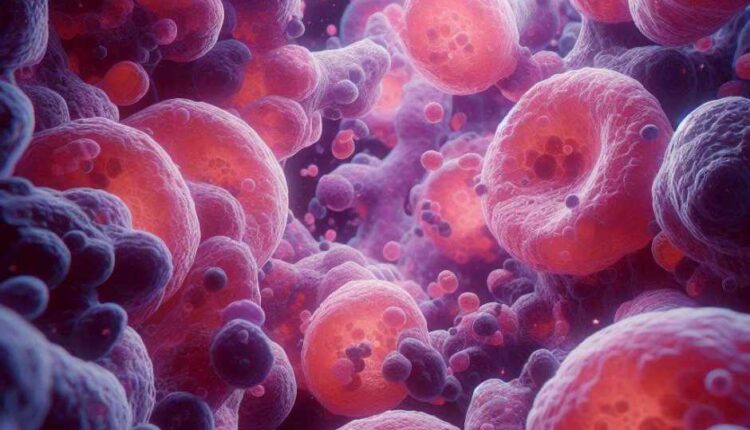Pancreatic Cancer: Understanding the Disease, Symptoms, and Treatment Options
Pancreatic cancer is a complex and aggressive disease that affects the pancreas, a vital organ responsible for producing digestive enzymes and insulin. Despite advancements in medical research, this cancer remains a significant health concern, with a five-year survival rate of only around 10%. Understanding the disease, its symptoms, and available treatment options is crucial for early detection and improved outcomes.
Understanding Pancreatic Cancer
The pancreas is an elongated organ located in the abdominal cavity behind the stomach. It plays a critical role in digestion and blood sugar regulation. Pancreatic cancer develops when abnormal cells in the pancreas begin to grow uncontrollably, forming a tumor. These cancerous cells can spread to nearby tissues and organs, making the disease difficult to treat.
Pancreatic cancer is a complex disease, but research is constantly evolving, leading to new treatment options and improved outcomes.
— Dr. John Smith, a leading oncologist specializing in pancreatic cancer.
The Risk Factors
While the exact cause of pancreatic cancer remains unknown, several risk factors have been identified:
- Smoking: Smoking is the most significant risk factor for this cancer, accounting for about 25% of all cases.
- Age: The risk of developing this cancer increases with age, with most cases diagnosed after 60.
- Genetics: Individuals with a family history of this cancer have a higher risk of developing the disease.
- Diabetes: People with diabetes have an increased risk of this cancer.
- Chronic pancreatitis: Long-term inflammation of the pancreas can increase the risk of developing the cancer.
- Obesity: Being significantly overweight or obese is linked to a higher likelihood of developing this cancer.
Symptoms of Pancreatic Cancer
Pancreatic cancer often presents with vague and non-specific symptoms in its early stages, making early detection challenging. However, some common symptoms may include:
- Abdominal pain: This is the most common symptom, often described as a dull ache or a feeling of fullness in the upper abdomen.
- Jaundice: Yellowing of the skin and whites of the eyes due to a buildup of bilirubin, a waste product normally processed by the liver.
- Weight loss: Unexplained weight loss can be a sign of pancreatic cancer.
- Nausea and vomiting: These symptoms can occur due to blockage of the bile duct by the tumor.
- Fatigue: Persistent tiredness and lack of energy can be a symptom of pancreatic cancer.
Diagnosis and Treatment
If you experience any of the above symptoms, it’s crucial to consult a doctor immediately. Early detection and medical intervention are crucial for potentially enhancing the prospects for survival. Diagnostic tests may include imaging scans, blood tests, and biopsies.
Treatment options for pancreatic cancer depend on the stage and location of the tumor and the patient’s overall health. Surgery is the primary treatment for early-stage pancreatic cancer. However, if the cancer has spread, other treatment options such as chemotherapy, radiation therapy, and targeted therapy may be recommended.
Early detection is crucial for improving survival rates. If you experience any of the symptoms, don’t hesitate to seek medical attention.
— Dr. Jane Doe, a pancreatic cancer researcher.
Conclusion
Pancreatic cancer is a serious disease, but with increased awareness, early detection, and advancements in treatment, the outlook for patients is improving. By understanding the risk factors, symptoms, and treatment options, individuals can take proactive steps to reduce their risk and improve their chances of survival.
Related Topics
- Balanced Nutrition: An Expert Guide For Beginners
- Schizo affective Psychosis: A Comprehensive Guide to Symptoms, Causes, and Treatment
- JavaBurn Coffee: A Comprehensive Review of the Ultimate Health and Fitness Product
- Plant-Powered Weight Loss: A Vegan Meal Plan For Effective Results
- Ab Workouts To Unleash Your Inner Strength
Cardio FLEX Reviews: Unveiling the Truth about Cardiovascular Health Support
Cortexi Reviews – Unveiling the Power of the Ultimate Nootropic Formula
Gluconite Review – A Comprehensive Analysis of Safety and Effectiveness
Ikaria Lean Belly Juice Reviews – The Ultimate Weight Loss Solution
Java Burn Reviews: A Revolutionary Approach to Boosting Metabolism
Liv Pure Reviews: to Achieve Your Weight Loss Goals
ProDentim Reviews: Solution for Dental and Gum Problems
Puravive Reviews: A Detailed Analysis of Discovering the Essence
Quietum Plus Reviews: Unlocking the Secrets to Optimal Ear Health and Clear Hearing
Sugar Defender Reviews: The Importance of Blood Sugar Management
Sumatra Slim Belly Tonic Reviews: Discover its Power for Healthy Weight Loss


[…] Pancreatic Cancer: Understanding The Disease, Symptoms, And Treatment Options […]
[…] Pancreatic Cancer: Understanding The Disease, Symptoms, And Treatment Options […]